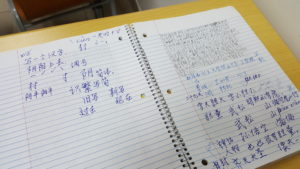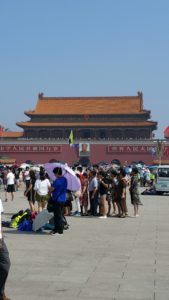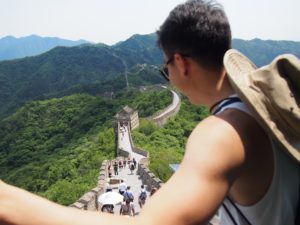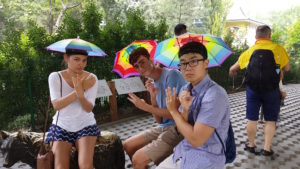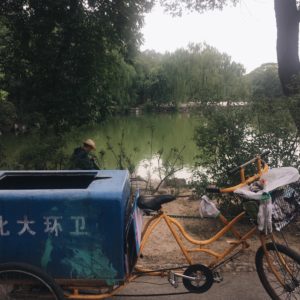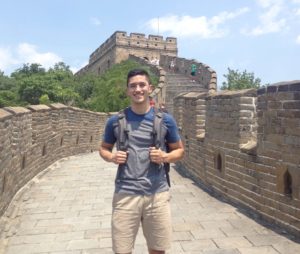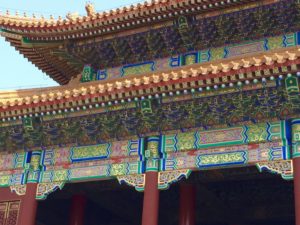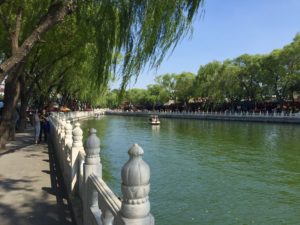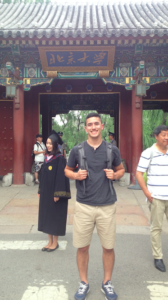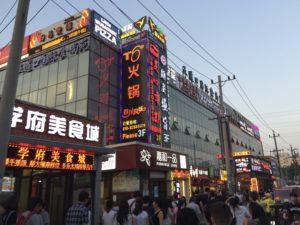The first week in Beijing was incredibly nerve-wracking, yet extremely exciting. Arriving in Beijing, there was a lot to get used to. Besides the jet lag, smog, and culture shock experienced in the first few days, we also had to quickly adjust to China’s lifestyle and traditional customs. No longer could we drink tap water or use an excessive amount of electricity—which we learned when the hot water in our shower turned off—but it wasn’t long before we were accustomed to daily life in China. Another major change was the transition into eating Chinese food everyday. Navigating a Chinese restaurant, let alone the cafeterias, was extremely challenging, as all of the menus were not only comprised of unfamiliar foods, but they were also written in Chinese characters. After a few days of pointing at different foods that looked good, we each found a few favorites we could rely on finding everyday in the dining hall. After receiving a tour of the campus and dorms from our teacher and our future language partners—Chinese students at Peking University—we were prepared to start our first classes at Peking University.
It also took a few days to get into the routine of daily classes and activities at Peking University, but within a few days we had a general knowledge of our host university, our dorms, and how to navigate our way through Beijing. The first week was both exciting and nerve-wracking, in that it was our first opportunity to use Chinese in our day-to-day lives. After signing the language pledge on the first day of class, we were required to speak only Chinese for the remainder of the program, and this forced us to use our Chinese not only in class, but also in our interactions with native speakers on a daily basis. While we all had prior experience with the Chinese language, this was quite a humbling experience, in that we quickly learned how much we didn’t know. From ordering food at the dining halls and restaurants to navigating public transportation, dorm life, Chinese banks, and shopping centers, we began practicing our Chinese in everything we did. The rest of the week progressed as we attended our daily morning classes, afternoon one-on-one sessions, and evening office hours. The rest of our days we filled with extra individual study, exploration of Beijing, and time getting to know one another.
On that Friday afternoon, we finished our first week of classes with a scavenger hunt intended to introduce us to different aspects of our host university’s campus, and after completing this scenic and interesting hike, we were given a demonstration of Chinese calligraphy by one of China’s most famous artists. After finishing our first week of classes, we got up on Saturday morning to depart on our first day trip—our hike of the Great Wall of China. While I had seen pictures of the wall in the past, I could never have imagined how truly amazing it truly is. After arriving at the wall, we began our ascent up roughly 6 levels of stairs, and though the roughly 100 flights of steps we climbed left us exhausted, the view was definitely worth it. The Great Wall was like nothing I have ever seen before.
The end of the week was comprised of a trip to the mall, which we soon discovered housed stores and restaurants from all over the world. Besides places to shop and eat, the mall includes a movie theater—with English movies and subtitles—and even an outdoor park to explore. This was a good end to the week.
